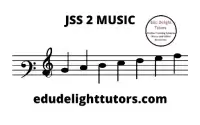Extending an Invitation: A Formal Letter to Our Guest Speaker
Composition English Grammar JSS 2 First Term Lesson Notes Week 10
Subject: English Grammar
Class: JSS 2
Term: First Term
Week: 10
Age: 12–14 years
Topic: Formal Letter – A Letter of Invitation (As a Guest Speaker)
Sub-topic: Structure and Language of Formal Letters
Duration: 40 minutes
Behavioural Objectives
By the end of the lesson, students should be able to:
- Understand the format and structure of a formal letter.
- Write a formal invitation letter inviting a guest speaker.
- Use appropriate language and tone in formal correspondence.
- Identify key components of a formal letter, including the date, address, greeting, body, and closing.
Keywords
- Formal Letter: A letter written for official purposes.
- Invitation: A request for someone to attend an event.
- Salutation: The greeting in a letter.
- Closing: The farewell at the end of a letter.
Set Induction
The teacher will ask students about their experiences with invitations and what makes a letter formal. This engages them and activates prior knowledge.
Entry Behaviour
Students should have a basic understanding of letter writing from previous lessons.
Learning Resources and Materials
- Example of a formal invitation letter
- Whiteboard and markers
- Handouts with letter format guidelines
Building Background/Connection to Prior Knowledge
Students have likely written letters before, both formal and informal, and can relate this knowledge to the new lesson.
Embedded Core Skills
- Writing: Developing clear and formal writing skills.
- Communication: Enhancing communication skills through formal correspondence.
Reference Books
- Lagos State Scheme of Work
- English Language Textbook for JSS 2
Instructional Materials
- Sample formal letter of invitation
- Format guidelines for formal letters
Content
Sample Composition: Formal Letter of Invitation
[Your School’s Letterhead]
[Your School’s Name]
[Your School’s Address]
[City, State, Zip Code]
[Date]
[Recipient’s Name]
[Recipient’s Address]
[City, State, Zip Code]
Dear [Recipient’s Name],
I hope this letter finds you well. On behalf of [Your School’s Name], I am writing to invite you to be our esteemed guest speaker at our upcoming [Event Name], scheduled for [Date] at [Time]. The event will take place at [Venue/Location].
The theme of this year’s event is “[Theme of the Event],” and we believe your experience and insights in [Relevant Field/Topic] would greatly benefit our students and attendees. Your participation would inspire and motivate our students to pursue their interests in [Subject/Field].
We would be honored to have you share your knowledge and experiences with us. Please let us know if you are available to join us on this occasion. Should you have any questions or require further details, feel free to contact me at [Your Phone Number] or [Your Email Address].
Thank you for considering our invitation. We look forward to the possibility of welcoming you to [Your School’s Name].
Yours sincerely,
[Your Name]
[Your Position]
[Your School’s Name]
Evaluation
- The letter is written to ______.
a) A friend
b) A guest speaker
c) A family member
d) A neighbor - The event will take place at ______.
a) The beach
b) The park
c) The school
d) The mall - The letter’s purpose is to ______ the recipient.
a) Annoy
b) Invite
c) Ignore
d) Criticize - The theme of the event is ______.
a) Vacation
b) Education
c) Entertainment
d) Sports - The sender’s name is ______.
a) Mr. Adeyemi
b) The Principal
c) The Writer
d) [Your Name] - The recipient’s address comes ______ the date.
a) After
b) Before
c) With
d) None of the above - The letter ends with ______.
a) Yours truly
b) Goodbye
c) See you later
d) Best wishes - The sender’s position is mentioned in ______.
a) The body of the letter
b) The closing
c) The salutation
d) The heading - The invitation is for an event on ______.
a) Sunday
b) Christmas
c) [Date]
d) New Year - The letter is written in a ______ tone.
a) Casual
b) Formal
c) Angry
d) Happy
Class Activity Discussion
- What is the purpose of the letter?
The purpose is to invite a guest speaker to an event. - What should be included in the sender’s address?
The sender’s address should include the school’s name, address, city, state, and zip code. - How should the recipient’s name be addressed?
The recipient’s name should be addressed formally, using “Dear [Recipient’s Name].” - What details should be included about the event?
The date, time, venue, and theme of the event should be included. - Why is it important to use formal language?
Formal language is used to show respect and professionalism. - What can be mentioned about the recipient’s expertise?
The letter can mention the recipient’s experience and insights related to the event theme. - How should the letter be closed?
The letter should be closed with “Yours sincerely,” followed by the sender’s name and position. - What should the sender do if the recipient has questions?
The sender should provide contact information for any questions or further details. - How important is the date in the invitation letter?
The date is crucial as it informs the recipient when the event will take place. - What kind of events can be included in a letter of invitation?
Any formal event, such as seminars, workshops, or school programs, can be included. - What should be avoided in a formal letter?
Casual language, slang, and overly personal remarks should be avoided. - How can the letter reflect the school’s professionalism?
Using a formal tone, proper format, and clear information can reflect the school’s professionalism. - What is a good way to express appreciation in the letter?
Thanking the recipient for considering the invitation is a good way to express appreciation. - Why is it important to have a clear theme for the event?
A clear theme helps to focus the event and makes it more appealing to potential speakers and attendees. - What is the role of the guest speaker?
The guest speaker is invited to share knowledge, experiences, and insights related to the event’s theme.
Presentation (Steps 1-3)
Step 1: The teacher reviews the components of a formal letter and discusses the importance of clarity and respect in formal communication.
Step 2: The teacher demonstrates how to structure a letter of invitation, emphasizing each part of the letter.
Step 3: The teacher encourages students to write their letters, inviting a guest speaker of their choice and incorporating the format discussed.
Teacher’s Activities
- Explain the components of a formal letter.
- Provide examples of effective invitation letters.
- Guide students in drafting their letters, offering feedback as needed.
Learners’ Activities
- Listen to the explanation of the formal letter format.
- Write a formal letter inviting a guest speaker.
- Share their letters with a partner for peer review.
Assessment
Students will write a formal invitation letter to a guest speaker, focusing on proper structure and appropriate language. The teacher will assess the letters based on these criteria.
Ten Evaluation Questions Related to the Topic
- What is the structure of a formal letter?
- How do you start a formal letter?
- Why is it important to include the date in the letter?
- What should the closing of a formal letter include?
- What kind of language should be used in a formal letter?
- How can you make the invitation more appealing?
- What details must be included about the event?
- Why is the recipient’s expertise important in the letter?
- How can you express gratitude in your letter?
- What are the common mistakes to avoid in a formal letter?
Conclusion
The teacher will collect the letters, review them, and provide feedback to help students improve their formal writing skills.
Related Posts

Broken Chords (Arpeggios) in Staff and Solfa
CONSEQUENCES OF COMMON CRIMES IN OUR SOCIETY

Exploring Careers in the Capital Market Business Studies JSS 2 First Term Lesson Notes Week 8
About The Author
Edu Delight Tutors
Am a dedicated educator with a passion for learning and a keen interest in technology. I believe that technology can revolutionize education and am committed to creating an online hub of knowledge, inspiration, and growth for both educators and students. Welcome to Edu Delight Tutors, where learning knows no boundaries.